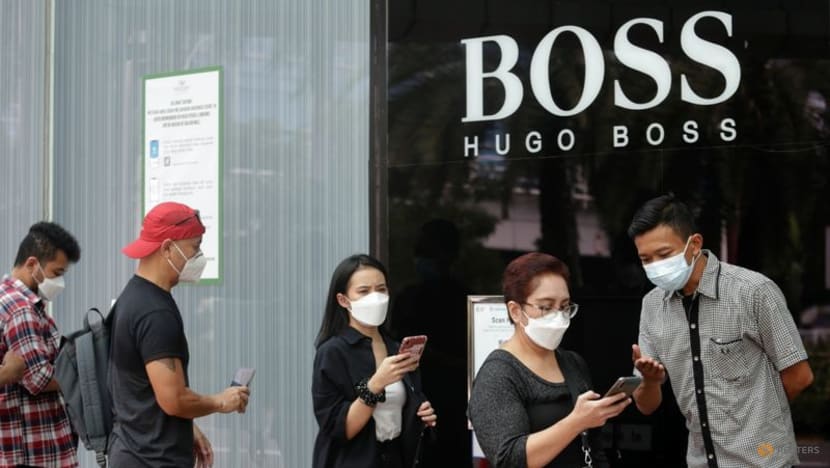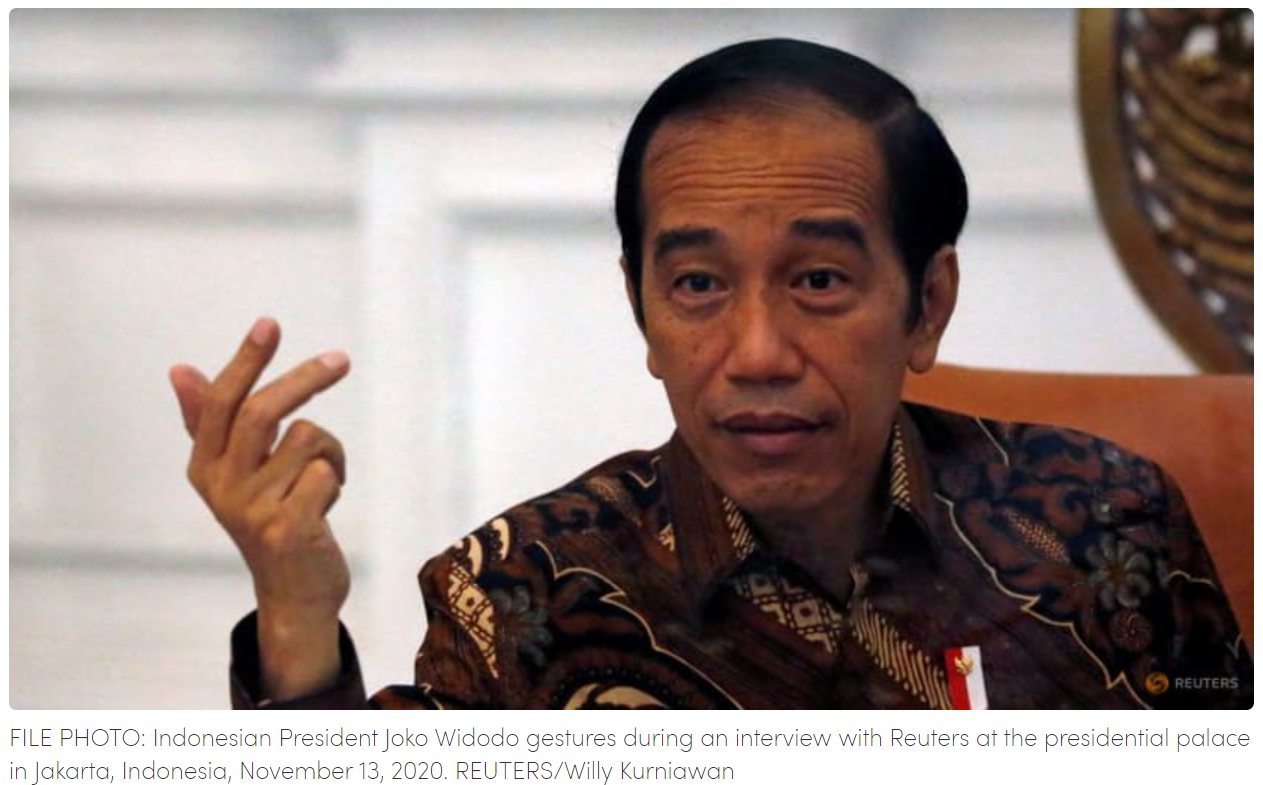Indonesia has to strike balance between health and economy; COVID-19 policies are consistent, says Jokowi
JAKARTA: COVID-19 has taught Indonesia how to find a balance between health and economic interests, said President Joko Widodo on Monday (Aug 16) as he addressed perceptions that government policies may not have been consistent when it comes to tackling the pandemic.
Speaking at the annual State of the Nation Address ahead of the country’s 76th Independence Day on Tuesday, Mr Widodo said in making decisions, the government must continue to refer to data, as well as to the latest science and technology as Indonesia continues to battle COVID-19 which has claimed the lives of at least 117,000 people in the country.
Jokowi, as the president is popularly known, also stated that the government’s objectives are consistent, but the strategy and management on the field must be dynamic and adapt to the problems and challenges.
“The tightening and loosening of community mobility, for example, must be done at most once every week while referring to the latest data. Maybe this is often read as changing policies, or policies that are not consistent.
“That is precisely what we must do, to find the best combination of interests between public health and economic interests because the virus is always changing and mutating. Thus the handling must change according to the challenges faced,” said Mr Widodo.
The unavoidable tightening of mobility to curb COVID-19 has led to the government providing more social assistance than in normal situations, he said, while noting that the government has ensured that people can get decent work and the economy can be improved.
Although the pandemic has hampered economic growth, it should not hinder economic structural reforms, said the president.
He highlighted that from January to June, Indonesia’s realised investment was at least 442.8 trillion rupiah (US$30.55 billion), excluding the upstream oil and gas sector and financial services. About 51.5 per cent of the realised investment was outside of Java.
These investments created more than 620,000 jobs for Indonesians, he also said.
With additional investment in the months ahead, the country can hopefully meet the target of 900 trillion rupiah this year, he said.

The president said he understood how people may feel fatigue, boredom and distress as the pandemic drags on.
“I also realise that there are so many criticisms towards the government, especially on things that we have not been able to resolve. Constructive criticism is very important, and we always answer by fulfilling our responsibilities as the people expect,” he said.
Monday’s address was held with only 60 people in the parliament and the majority of lawmakers followed the event online due to the COVID-19 pandemic.
The president also unveiled the proposed budget for 2022 at 2,708.7 trillion rupiah. This was slightly lower than the 2021 budget of 2,750 trillion rupiah.
He said the government will uphold the themes of economic recovery and structural reforms in its budget for next year.
“The COVID-19 pandemic has not come to an end. In 2022, we are still going to face great uncertainties. We also have to be prepared to face other global challenges, including the threat of climate change, increased geopolitical dynamics as well as uneven global economic recovery.
“Therefore, the 2022 state budget must remain anticipative, responsive, and flexible in responding to uncertainties, while still reflecting optimism and cautiousness,” said the president.
He predicted that the country will see economic growth of between 5 per cent and 5.5 per cent next year, higher than the forecast for this year of 3.7 per cent to 4.5 per cent.
Mr Widodo said that there are six priority areas for the 2022 state budget.
They include controlling COVID-19, maintaining the sustainability of social protection programmes and strengthening human resources.
The government also pledged to continue infrastructure development, strengthen fiscal decentralisation and continue budgeting reforms.
Source: CNA/aw


 English
English




